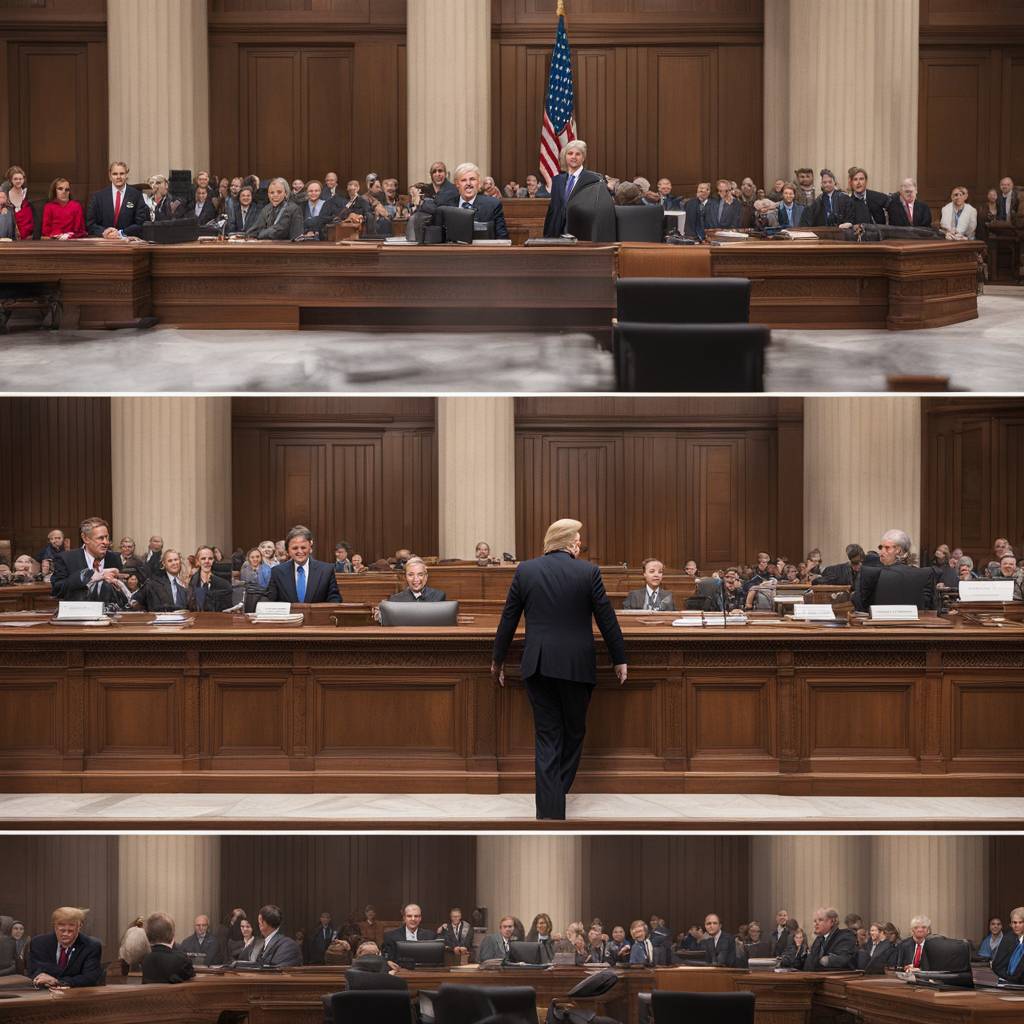Special counsel Jack Smith has asked the Supreme Court to reject former President Donald Trump’s immunity claim in the federal 2020 election interference case. Smith argued in a 66-page filing that Trump’s claim of immunity goes against the principle that no person is above the law, including the President. He stated that the President’s duty to enforce laws does not give him the right to violate them, and refuted Trump’s assertion that he is immune from prosecution. Smith pointed out that historical precedent does not support criminal immunity for a former President, citing the Watergate situation with President Nixon as an example.
Smith described Trump’s interpretation of presidential immunity as “radical,” as it would essentially exempt the President from all criminal laws. The Supreme Court is set to hear oral arguments on Trump’s immunity claim in April. A federal appeals panel previously rejected Trump’s argument, stating that he does not have the authority to commit crimes that would neutralize the checks on executive power. Trump’s lawyers had argued that the charges against him were related to his official duties and that he could not be charged because of his impeachment in relation to the Capitol riot.
Trump was indicted on four felony counts last summer, including conspiracy to defraud the United States and obstructing official proceedings, over his efforts to overturn the 2020 election results. Smith accused Trump of making knowingly false claims of voter fraud in an attempt to retain power. If the Supreme Court rules in Trump’s favor, the federal charges against him could be dismissed. Smith emphasized the importance of holding former Presidents accountable for their actions and ensuring that no individual is above the law.
The special counsel’s filing highlights the historical precedent of former Presidents facing potential criminal liability after leaving office, indicating that criminal immunity is not a recognized concept. Smith argued against Trump’s assertion of immunity, stating that it would grant the President unchecked authority to commit crimes. The upcoming oral arguments before the Supreme Court will determine the validity of Trump’s immunity claim and whether the federal charges against him will proceed.
The legal battle over Trump’s immunity claim revolves around the fundamental principle of accountability under the law. Smith’s arguments against Trump’s claim focus on the limitations of Presidential power and the necessity of upholding the rule of law. The outcome of the Supreme Court’s decision will have significant implications for the legal standing of former Presidents and the enforcement of criminal laws against them. Smith’s filing underscored the importance of ensuring that all individuals, regardless of their position, are subject to the laws of the land and held accountable for any criminal actions.













